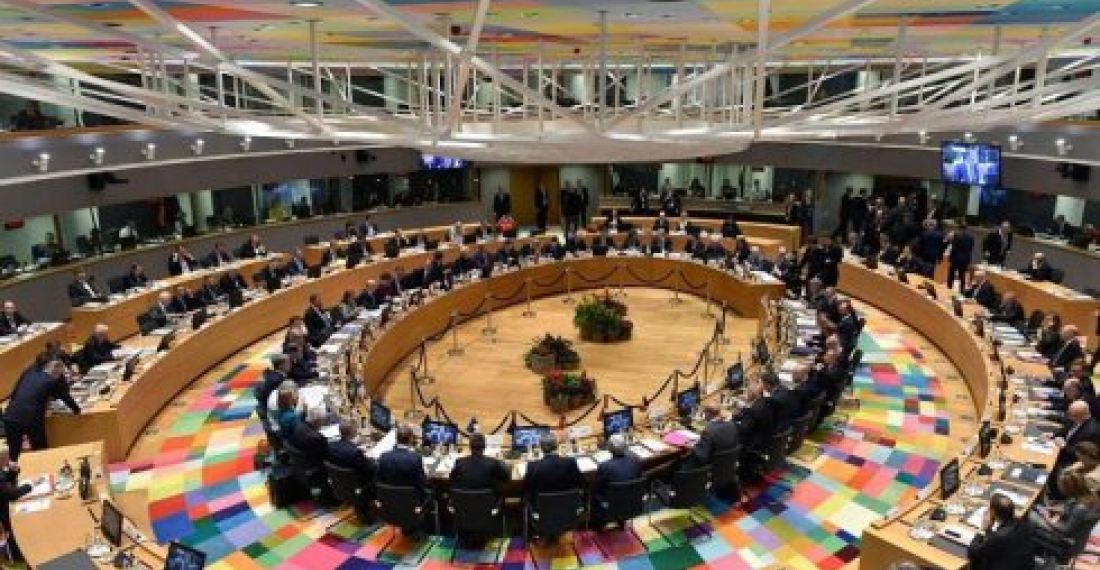The 5th Eastern Partnership Summit took place today in Brussels. The leaders of all 28 Member States accompanied by the heads of EU institutions participated in the Summit with the six Eastern Partnership countries: Armenia, Azerbaijan, Belarus, Georgia, Republic of Moldova and Ukraine.
At the Summit, leaders took stock of progress made since the Riga Summit in 2015, with a focus on the tangible impact the partnership brings to eastern partner citizens.
A final declaration has been issued at the end of the summit highlighting the willingness of all the sides to push ahead with concrete areas of future co-operation Read it in full here
The leaders of the EU states and the six parnter states re-affirmed their shared commitment to the Eastern Partnership which they described as "strategic and ambitious", and "based on common values, mutual interests and understanding, shared ownership and responsibility, differentiation, mutual accountability, which brings the Eastern European partner countries closer to the European Union". They emphasised that "sustained and effective reform progress is key to the continued success of the Eastern Partnership".
The participants stressed "that the Eastern Partnership aims at building a common area of shared democracy, prosperity, stability and increased cooperation and is not directed against anyone. Where linkages with other partners require broader involvement and would contribute to the objectives of particular activities and the general objectives of the Eastern Partnership, cooperation on a case-by-case basis may be open to third countries". They reaffirmed "the sovereign right of each partner to choose the level of ambition and the goals to which it aspires in its relations with the European Union."
On the important issue of differentiation, the final declaration accepts the need that "the scope and depth of cooperation are determined by the EU's and partners' ambitions and needs, as well as the pace and quality of reforms". It adds:
"The Summit participants commend the full entry into force of the Association Agreements and Deep and Comprehensive Free Trade Areas with Georgia, the Republic of Moldova and most recently with Ukraine following the December 2016 decision by the EU Heads of State or Government.
In this context, the Summit participants acknowledge the European aspirations and European choice of the partners concerned, as stated in the Association Agreements. The agreements provide for accelerating political association and economic integration with the European Union. The Summit participants welcome the EU's support to their implementation. In this context, while preserving the inclusivity of the EaP, it is timely to engage the AA/DCFTA partners in joint discussions on the progress, opportunities and challenges concerning the association-related reforms, as requested by these partners, and with the aim of facilitating full implementation of the AA/DCFTAs."
With regards to Armenia and Azerbaijan the declaration says:
"The Summit participants welcome the signing of the Comprehensive and Enhanced Partnership Agreement between the European Union and Armenia in the margins of the Summit. The participants welcome good progress in the ongoing negotiations between the European Union and Azerbaijan for a new framework agreement."
In a reference to the unresolved conflicts in the region the statement says:
"The Summit participants remain deeply concerned about the continued violations of principles of international law in many parts of the region. The Summit participants call for renewed efforts to promote the peaceful settlement of unresolved conflicts in the region on the basis of the principles and norms of international law. The resolution of conflicts, building trust and good neighbourly relations are essential to economic and social development and cooperation. The Summit participants welcome efforts and the EU's strengthened role in conflict resolution and confidence building in the framework or in support of existing agreed negotiating formats and processes, including through field presence, when appropriate."
Commonspace.eu political editor said in a comment that "as expected the declaration from the 5th Eastern Partnership summit did not change in any significant way the approach of the EU to the eastern neighbourhood. However the declaration has something for everybody, and there are interesting nuances in the text that can form the basis in the future for the next steps in the EU's engagement with the region. The Eastern Neighbours too seem to have approached the summit with a more realistic view of what they can achieve in the present reality. On the whole the work that has been done in the past months to prepare for the summit has payed off. And the message from the EU is clear, that it is now an important player in the Eastern neighbourhgood, and that the committment to the countries and people of the region is long term.".
source: commonspace.eu







